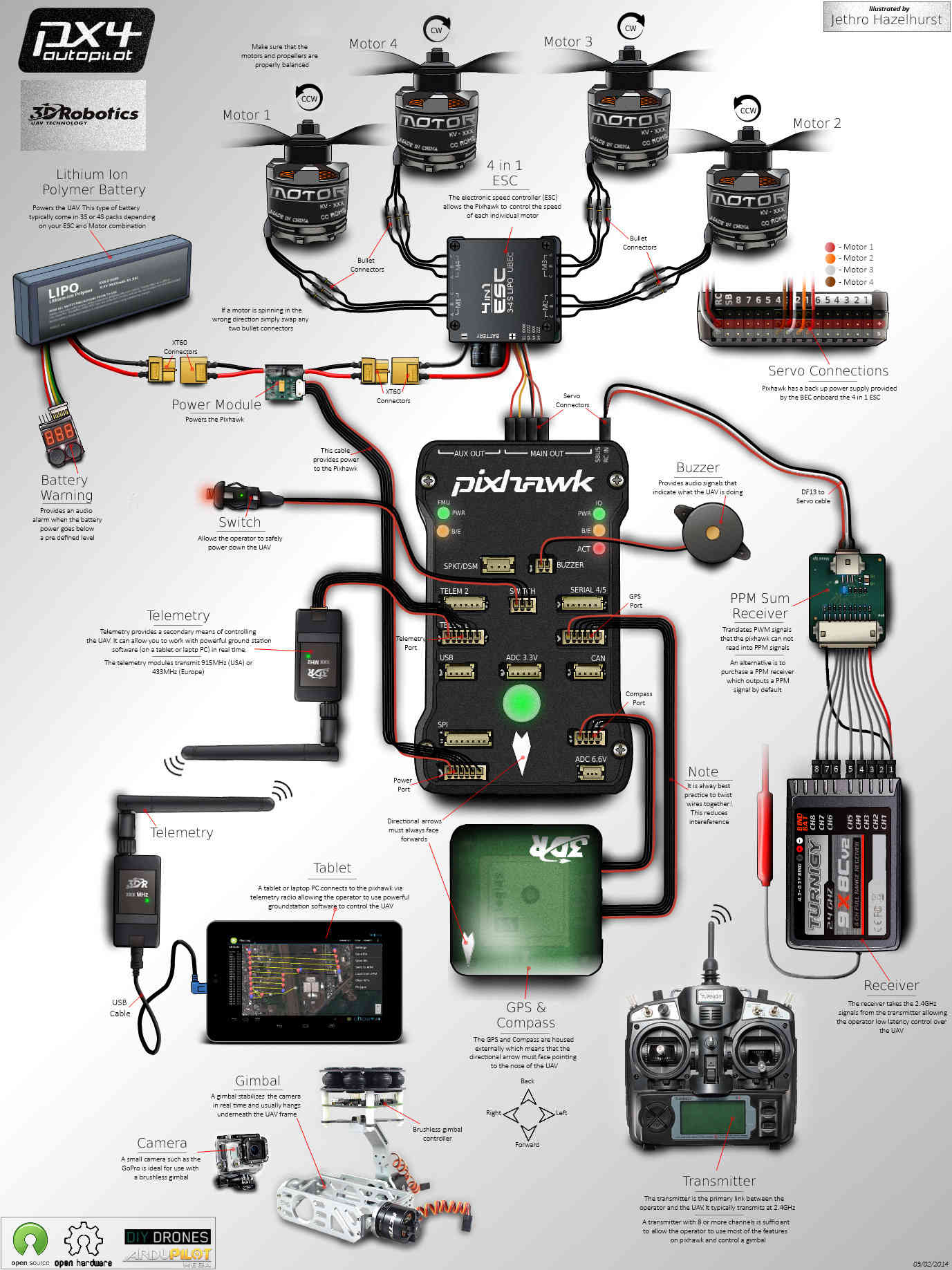Advanced Pixhawk Quadcopter Wiring Chart¶
Jethro Hazelhurst produced this magnificent Pixhawk wiring chart for a Quadcopter for us.
(Control Scroll wheel will let you zoom in on the image below!)

This chart Illustrates a quadcopter with a variety of options.¶
- A 4 in 1 ESC is used instead of individual ESCs reducing EMF and allowing a neater installation and no power distribution board.
- Actual Motor number to Quadcopter frame location is shown below and will require appropriate signal and motor wire routing.

- A 3DR PPM-Sum encoder with conventional receiver is illustrated, A PPM-Sum receiver could be used instead.
- Generally a 3S or 4S LiPo battery is appropriate for a Quadcopter and the XT60 connectors shown are a reliable choice.
- An optional battery warning indicator can provide quick battery status and provide an audible warning when nearby.
- Optional 3DR telemetry radios may be connected to your Pixhawk and
tablet or laptop to permit real time monitoring and operation.
- A (GCS (Ground Control Station) program like Mission Planner, AndroPilot or DroidPlanner provides in flight information and control.
- An optional GoPro camera and brushless gimbal are illustrated and can
provide very high quality photo and video results.
- It is quite reasonable to use a GoPro camera and brushless gimbal on 400 and larger Quadcopters.
- Brushless camera gimbals perform more smoothly and adequately than the older servo type gimbals.
- The brushless gimbal illustrated above has an anti-vibration mount which is important for good photo results.
- For cameras larger than GoPro or “Sport” types, a larger QuadCopter, HexaCopter or OctoCopter should be used.
- You could also install an optional FPV (First Person View) video
system but it is not shown in the illustration above.
- An FPV system consists of a tiny video camera and transmitter on the copter plus a receiver and video goggles or an LCD screen.
- Almost any size Quadcopter can support a First Person View system.
- An optional OSD (On Screen Display) can add a video heads up display of current in flight conditions to your FPV flight display.
- The telemetry, camera, gimbal, FPV and OSD options mentioned above can be combined as you wish for your copter but start simple.